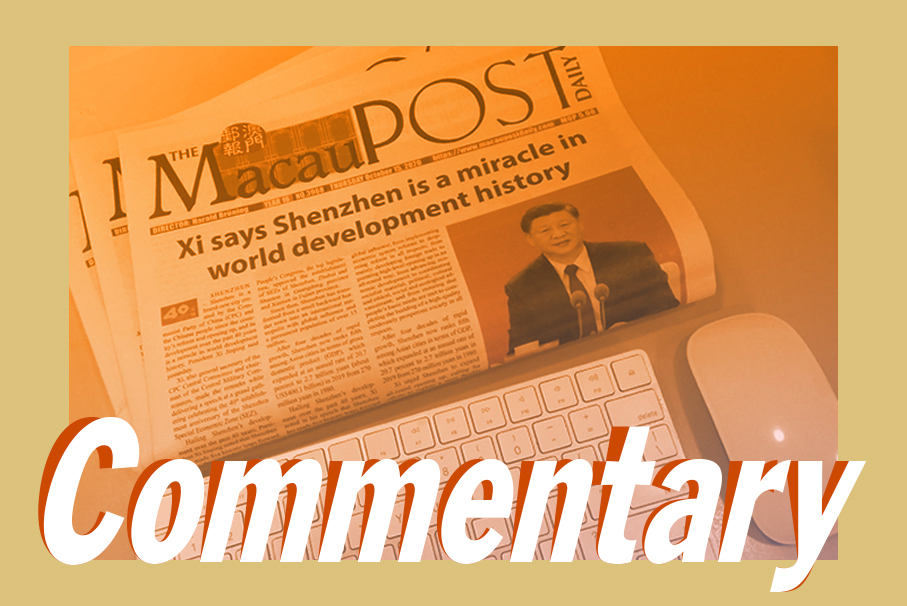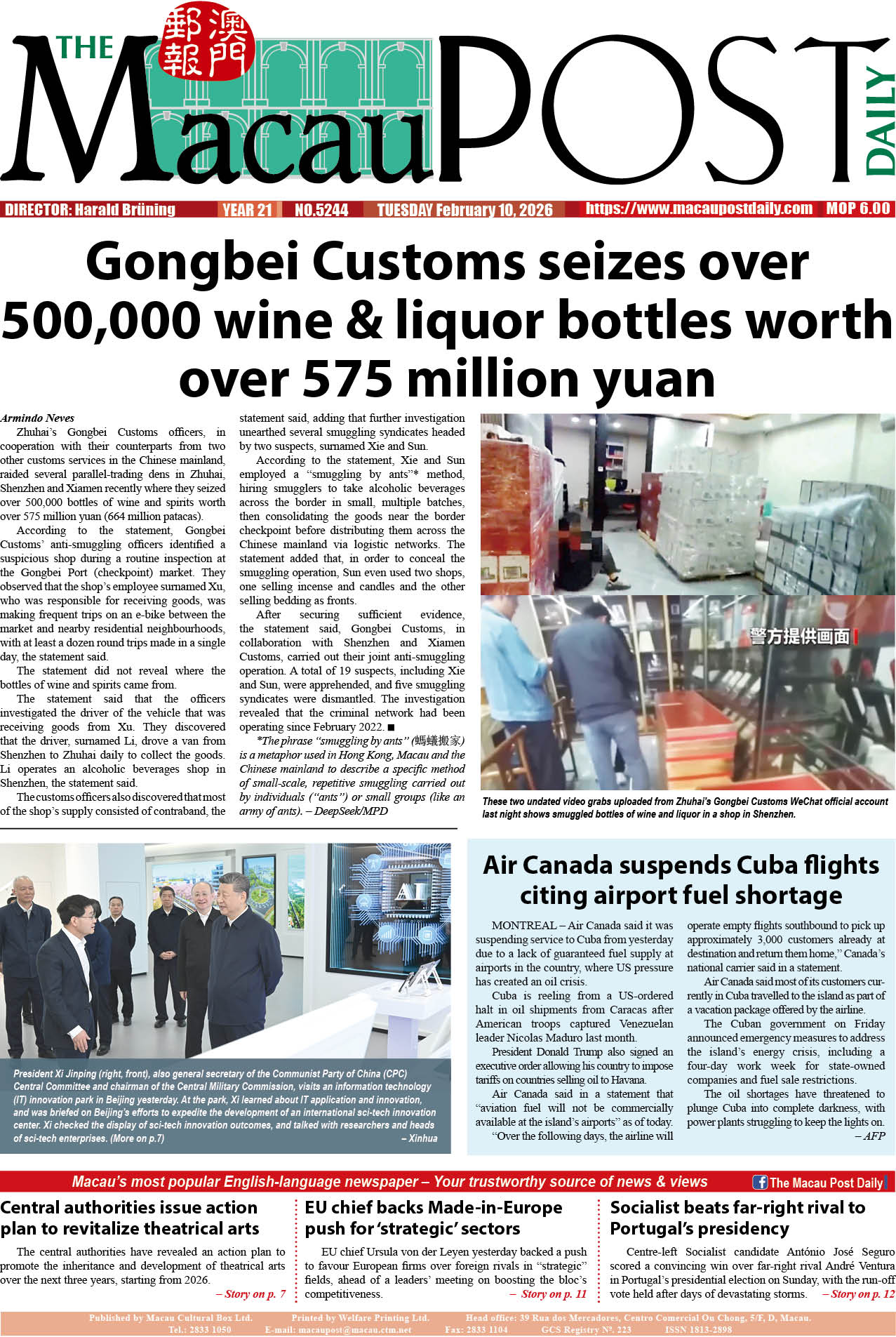As the plastic waste generated by the city has reached a “worrying” situation, the government is “the only one” that can stop Macau’s residents from generating massive plastic waste on a daily basis, eco-activist Annie Lao said yesterday.
Lao, who did not wish to be identified by her full Chinese name, made the remarks during a phone interview with The Macau Post Daily yesterday.
Lao, a 28-year-old local resident and writer, is one of the five organisers who started an online petition last week entitled “Macau Plastic Waste and Pollution”, which will be sent to several high-ranking government officials including Secretary for Transport and Public Works Raimundo do Rosario and Environmental Protection Bureau (DSPA) Director Raymond Tam Vai Man.
Lao said that she and her friends were inspired to start the petition by the single-use plastic packing they see in their lives. “Every day I go to the supermarket to buy fruit and vegetables. However, I only want the produce, not the plastic bags and other plastic packing which are designed to be used only once and disposed of afterwards,” Lao said, adding that Macau’s current amount of plastic waste was definitely too much.
According to DSPA figures, in 2012 Macau produced 365,680 tonnes of solid waste that year, with a daily average of 1.74 kg of solid waste per capita, compared to 1.3 kg daily solid waste per capita by Hong Kong, and 0.27 kg by Taipei.
In the latest edition of the DSPA’s State of the Environment of Macau 2017 report, Macau’s solid waste has risen to 510,702 tonnes or 2.16 kg daily per capita while Hong Kong’s figure is 1.41 kg. The latest edition of the report didn’t list Taipei as a comparison city.
Since 2013, the Environmental Protection Bureau has held an activity promoting the reduced use of plastic carrier bags. According to the ongoing activity, any local resident who refuses a plastic carrier bag when shopping in specific shops and supermarkets can get a stamp on their receipts, with which they are entitled to join a lucky draw. This year’s activity is being held between June 1 and August 31, with gifts being supermarket coupons and prepaid cash cards.
The bureau’s website also states that itaims to promote the elimination of plastic carrier bags step-by-step, moving from a voluntary approach in the short-term to a compulsory one in the long-term.
Referring to the measures, Lao said that she was “angry” and felt disappointed by how slow the government is carrying out its waste reducing and other environmental friendly tasks. The activist pointed out that the lucky draw activity is only held for several months every year, and she questioned whether it’s supposedly unnecessary to reduce waste at other times of the year.
She described the Environmental Protection Bureau as an entity “not protecting the environment” and urged the government to come up with a new law which could once-and-for-all eliminate all kinds of single-use disposable plastics.
The environmentalist said that the government should also stop the city’s casinos from giving out small plastic bottles of water for free as people take them even though they are not thirsty. She said that casinos could set up water dispensers or vending machines instead.
Lao acknowledged that the government has been promoting recycling. However, she noted that recycling is a remedy which merely provides symptomatic treatment while only by reducing waste could it cure the “disease” – continuous plastic pollution.
She urged the government to intensify its eco-friendly measures to show its determination to protect the environment.
The petition will be available for signing for one more week and can be found on the website www. change.org under the heading “Macau Plastic Waste and Pollution.” Until the time of going to press, the page had gathered over 3,700 signatures.
This photo taken yesterday in Rua de Malaca in Zape shows various items including a mattress, a drawer, a styrofoam container and children’s toys dumped in the street. Photo: Joel Chu








